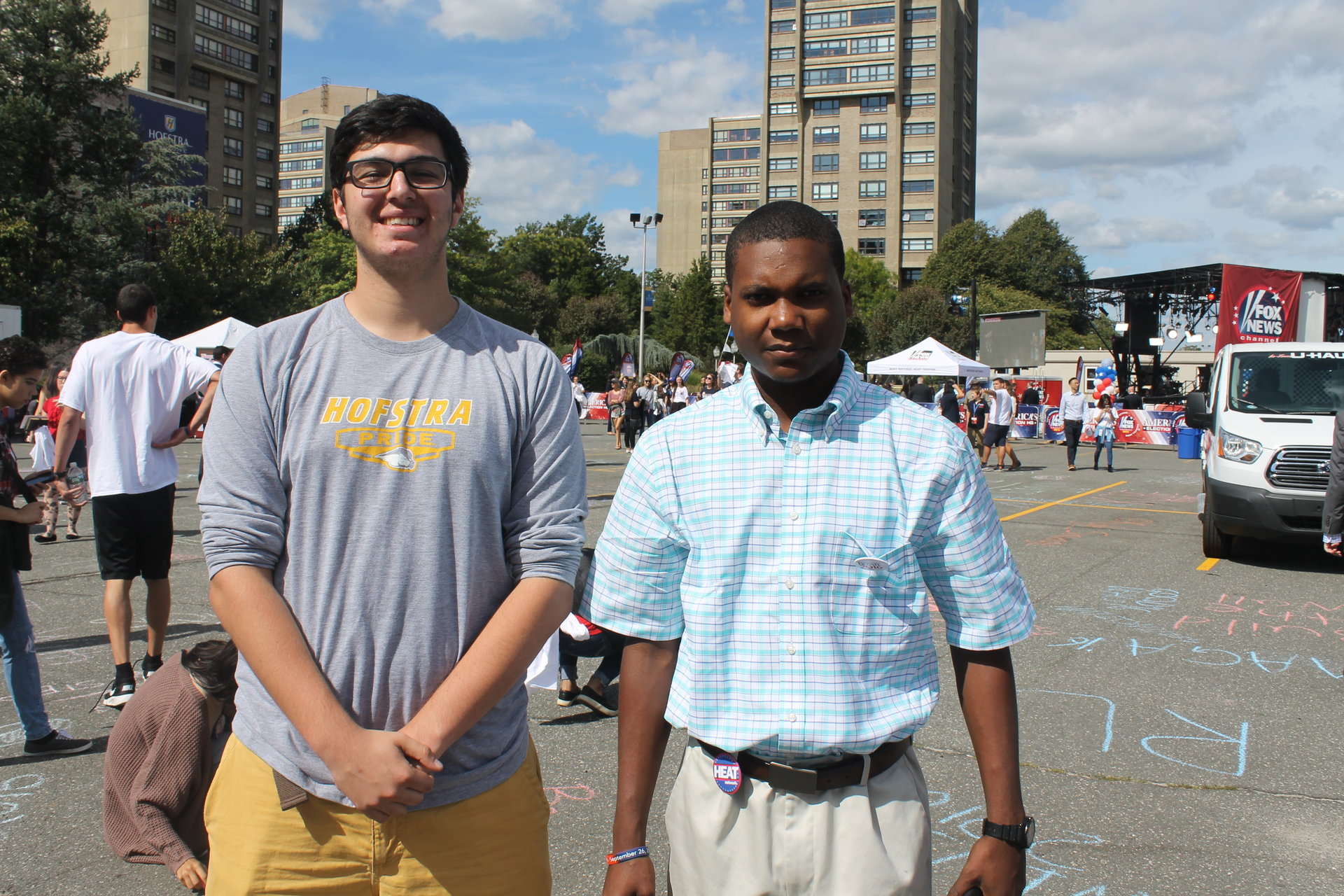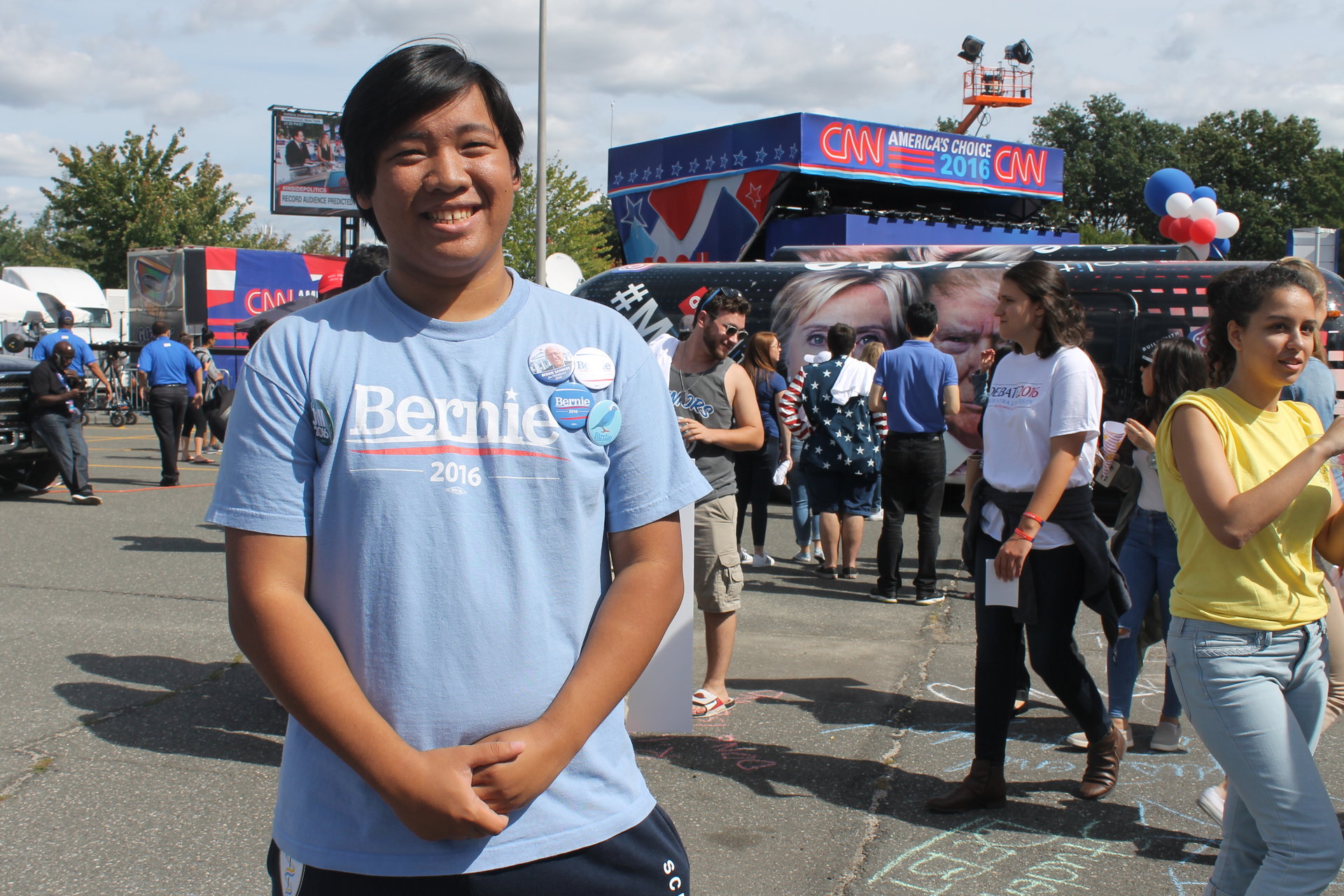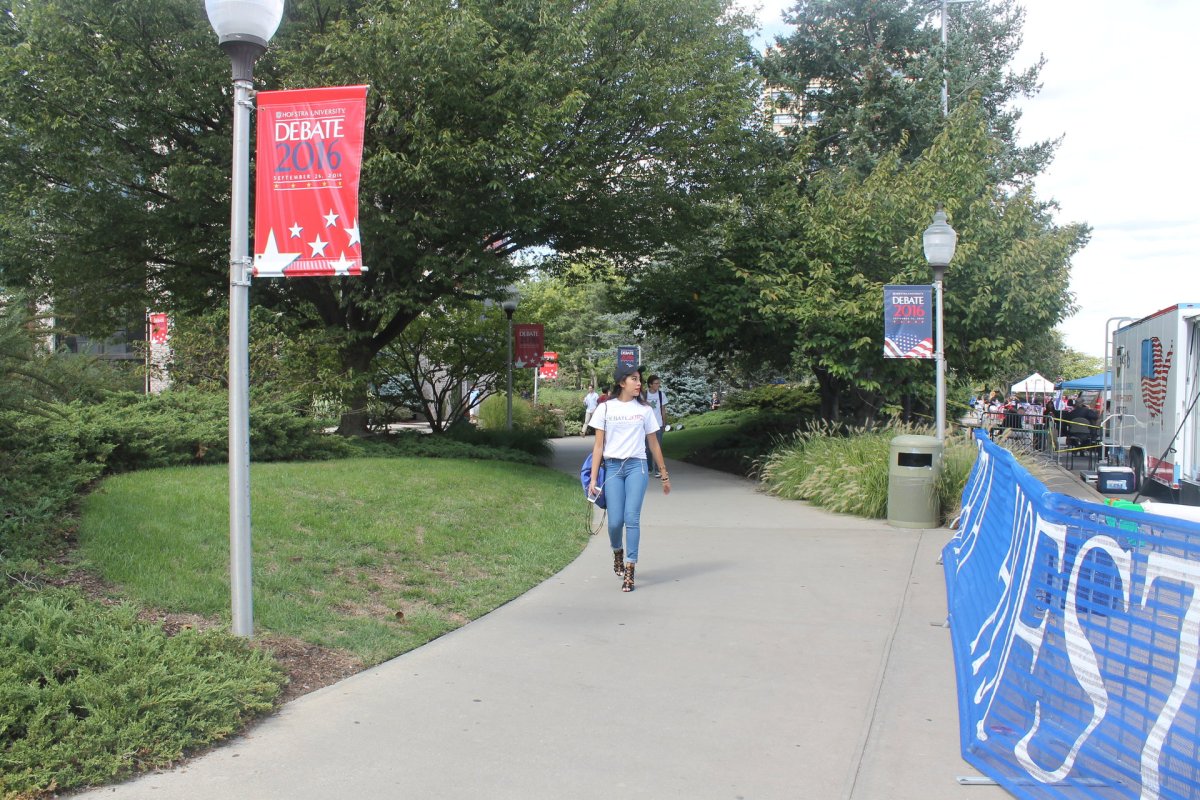Young people across Hofstra University Monday let out their inner-child and jumped around in a bounce house, explored the nascent technology of virtual reality, and reveled in the excitement that enveloped their campus.
Yet when it came to discussing the impending debate between Hillary Clinton and Donald Trump, many interviewed by the Press said they were still unsure about which candidate would earn their vote, and were dissatisfied by the lack of substance espoused by the candidates, Trump in particular.
“I think that this really is so crucial because we need to elect an individual that can bring change to our country—it’s just as simple as that,” said freshman student Dwight Spencer from Miami, crystallizing the importance of this election to many people his age.
Sure, students were enthusiastic about all the events on campus and seeing their favorite journalists and political pundits walking among them, but the future of America—their future—took center stage in their minds.
The issues important to them ranged from climate change, the cost of college tuition, and national security to inequality, the national debt and social justice.
Hofstra’s Christian Sandidge was disappointed by the meager coverage of environmental issues, dating back to the primaries more than one year ago.
“This is the seventh consecutive month of record-breaking heat, so we need to address that, like, yesterday,” said Sandidge of Virginia.
Sandidge, a sustainability major, said given the nominal coverage to date, she doesn’t expect debate moderator Lester Holt to make climate change an issue on the debate stage Monday night.
“But I think it should be,” she said.
Kyle Mas, a 19-year-old freshman from New Jersey, said the budget and federal debt are his top concerns.
Mas, who was wearing a shirt emblazoned with the name of Libertarian candidate Gary Johnson, said he’s going into the debate open-minded but is not convinced either candidate will be able to sway him.
“With how things are going right now, I would rather vote third party than anything else,” he said. “I’m hoping that somebody will change my mind tonight or the weeks going forward from here.”
Mas also offered a stinging critique of the media.
“The current news cycle just feels like propaganda,” said Mas. “I think it’s a critical failure at this point. There’s no excuse for some of this stuff. You can watch the news for two days in a row, and you probably won’t hear anyone talk about an issue.”
His friend Sam Thor—“Like the Avenger,” Thor joked—agreed. He said he wants more substance from the candidates—and more focus from the media on the candidates’ specific policy proposals.
“I probably want more about how they’re going to increase jobs…especially being a college student. All we care about is if we’re going to get a job when we come out of here,” Thor said. Hearing candidates say “we’re going to make jobs” is not good enough, he added.
Tyler Butrica, a 19-year-old sophomore from Massachusetts, hopes to walk away from Monday night’s debate with a clearer understanding of each candidate’s positions.
He was impressed with the sheer depth of Clinton’s proposals laid out on her website. Trump’s website, however, is lacking, he said.

Spencer, the freshman from Miami, who supports Clinton, urged his fellow classmates not to dismiss this election.
“I think it’s so important because of all the controversy that’s happened around it, from things said about Hillary Clinton, from the things Donald Trump has done—knowing that Donald Trump has never been a politician,” Spencer, 19, said. “I think that this really is so crucial because we need to elect an individual that can bring change to our country—it’s just as simple as that.”
His fellow freshman, Patrick Foster, has been watching the unrest that’s unfolded in places like Charlotte, North Carolina, following the most recent high-profile fatal shooting of a black man by the police and would like to see some time devoted to social issues.
“It’s a rising problem in this country, and I think in the 21st century it shouldn’t even be around. We should be past that,” said Foster, who typically votes Libertarian but is learning toward Clinton.
Walking around campus in a “Make America Great Again” cap was Sage Camosse, a freshman from Massachusetts.
Camosse’s chief concern is national security. Although he thought the original GOP field included more preferable candidates, he’s all-in for Trump.
“There were definitely some better candidates, but at this point, it’s one or the other, because voting third party—I’m fine if people do it—but it’s not going to make a difference.”

Antonio Agcaoioi, a sophomore from Massachusetts, proudly wore his Bernie Sanders shirt despite the U.S Senator from Vermont’s loss to Clinton in the Democratic primary. Because he lives in a Democratic state, he plans to vote third-party instead of throwing his support behind Clinton.
“The big issue for me, and I’m a millennial…[is] the economy, and both the candidates really aren’t showing us exactly what they want policy-wise for the economy of America,” he said. “With Donald Trump, we’re not getting any plans, but with Hillary Clinton we’re getting plans, but we’re getting her record, which always counteracts those plans. That’s why we’re always very skeptical of Hillary Clinton, and why we honestly don’t trust her or Donald Trump with our economy.”
How much either candidate will delve deep into policy details is anyone’s guess. But it’s clear: young people expect more from both Clinton and Trump, and the rest of America should, too.































